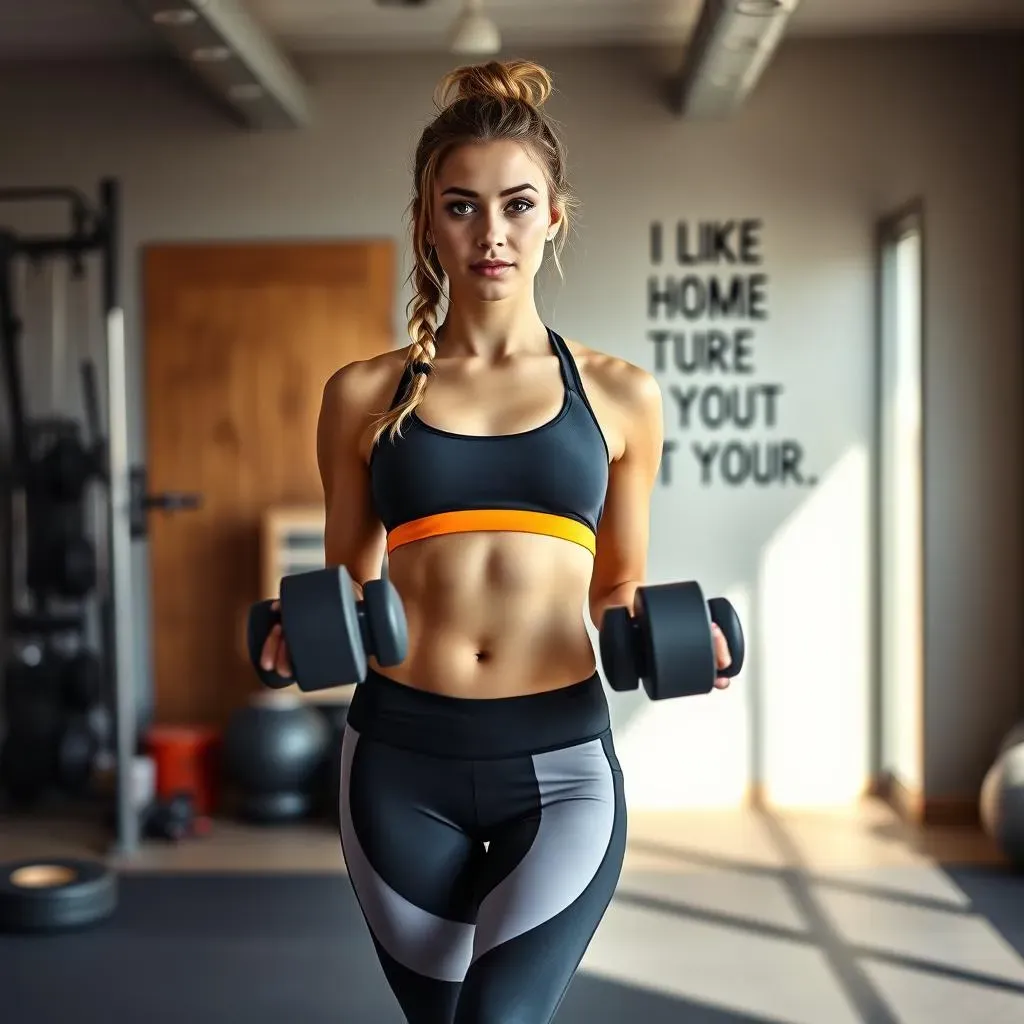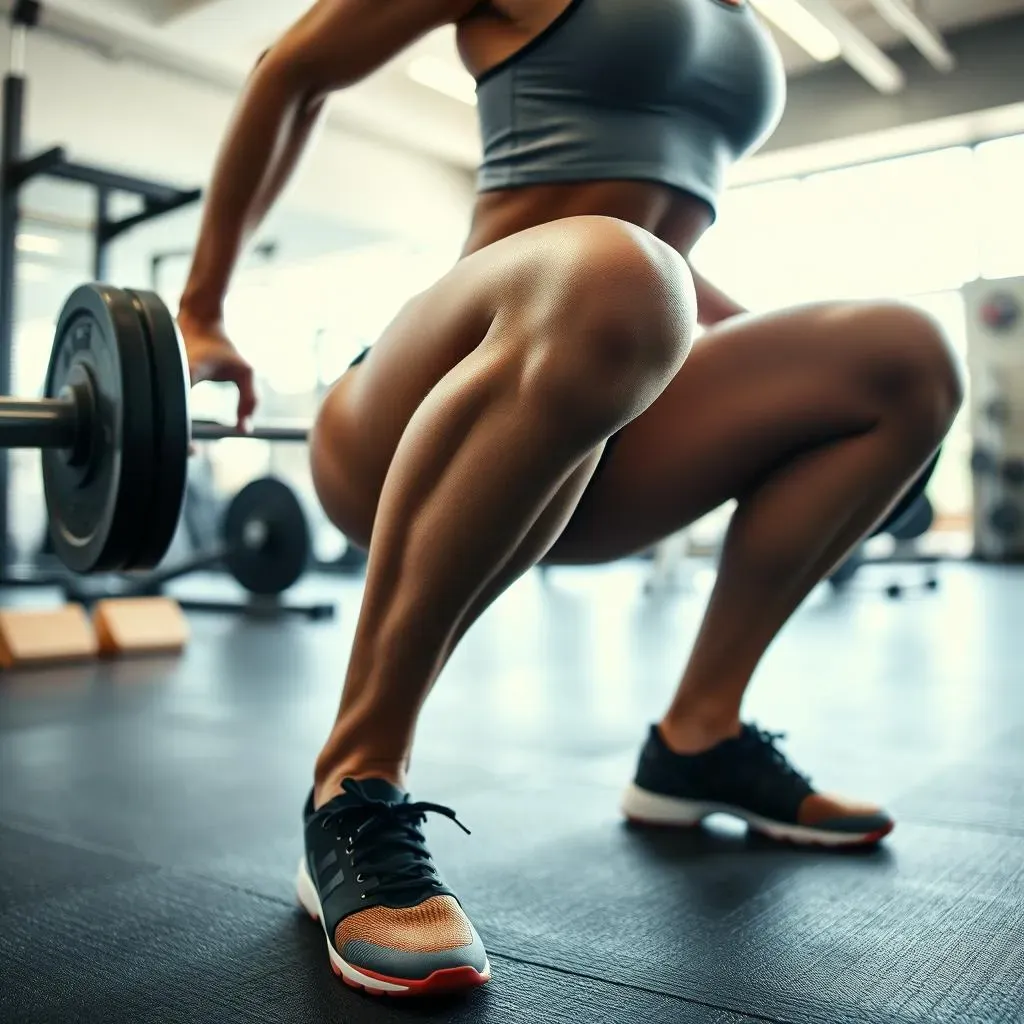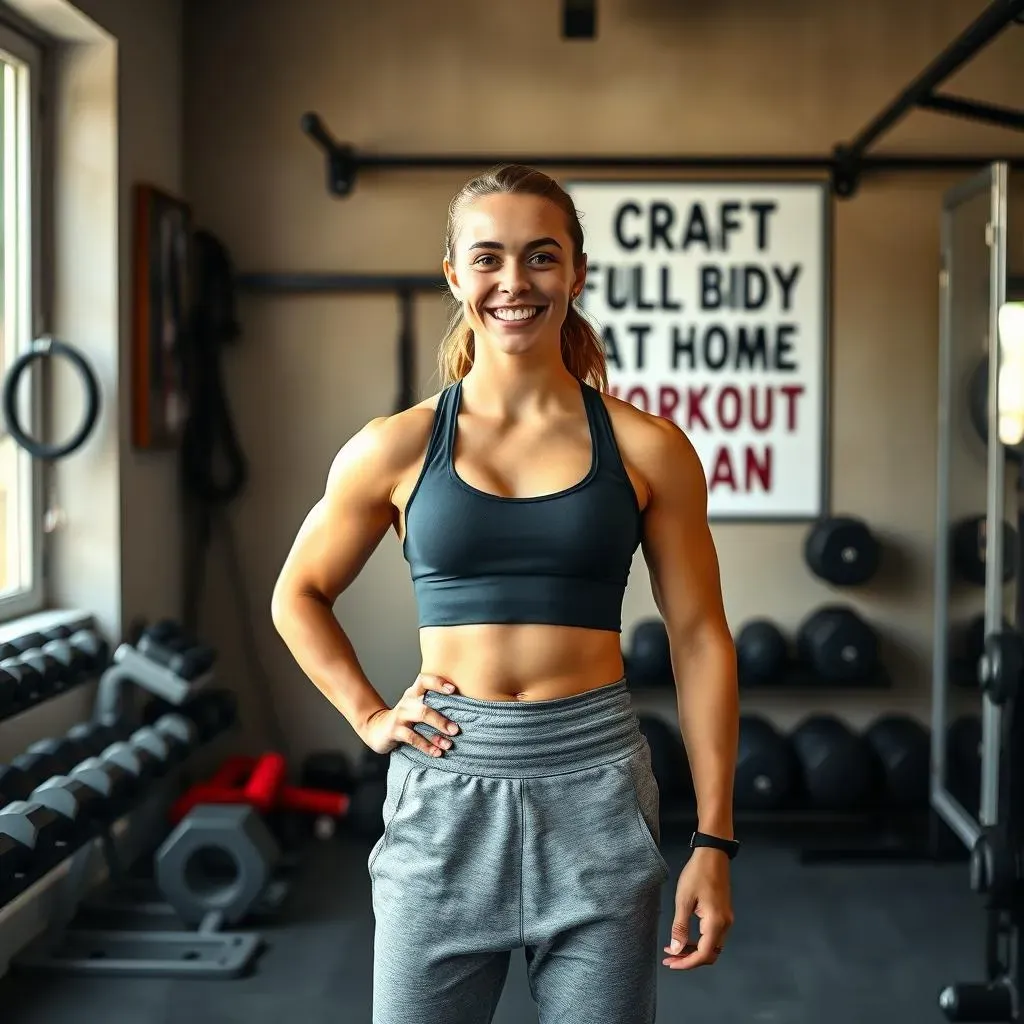Table of Contents
Want to get fit without hitting the gym? You're in the right spot. This guide is all about the **full body at home workout for beginners**. Forget fancy equipment, we're using your own body weight to build strength and get you moving. Think you need weights to see results? Think again. Bodyweight exercises are awesome for building muscle, especially when you know how to progress. We'll walk you through a simple but effective routine, showing you the best moves to get started. Plus, we'll cover the crucial stuff like warming up, cooling down, how often to train, and even what to eat to fuel your fitness goals. Ready to transform your body from the comfort of your home? Let's jump in!
Unlock Your Fitness: Full Body at Home Workout for Beginners

Unlock Your Fitness: Full Body at Home Workout for Beginners
Why Bodyweight Training Rocks
Thinking about getting started with fitness? Forget the crowded gyms and expensive gear for now. Your own body is an amazing piece of equipment! Seriously, you can build strength, torch calories, and feel fantastic with just bodyweight exercises. It's like unlocking a superpower you already had. Plus, you can do it anywhere, anytime. No more excuses about not having time to get to the gym.
Your Starting Line: Simple Moves, Big Gains
So, what exactly are we talking about? Think squats, push-ups, lunges, and planks. These might sound basic, but they're the foundation for a strong and healthy body. Don't underestimate them! The beauty of these exercises is that you can modify them to fit your current fitness level. Can't do a full push-up? No sweat, start with them on your knees. It's all about starting where you are and gradually getting stronger.
Exercise | Why it's Great |
|---|---|
Squats | Works your legs and glutes (butt muscles!) |
Push-ups | Builds upper body strength (chest, shoulders, arms) |
Lunges | Targets legs and improves balance |
Plank | Strengthens your core (abs and back) |
Making it a Habit: Consistency is Key
The secret sauce to seeing results? Consistency. It's better to do a little bit regularly than to go all-out once a month and then crash. Think of it like brushing your teeth – you do it every day to keep your teeth healthy. The same goes for your body. Aim for a few workouts each week, and you'll be surprised at how quickly you start feeling the difference. It's about building a sustainable habit, not a quick fix.
Your Beginner's Guide to the Best Full Body Exercises at Home

Your Beginner's Guide to the Best Full Body Exercises at Home
Squats: Your Lower Body Powerhouse
Alright, let's break down some of the best moves. First up: squats. These aren't just about your legs; they work your glutes (hello, booty gains!), and even your core gets in on the action. Think of it like sitting down in a chair, but without the chair. Keep your feet shoulder-width apart, chest up, and go down until your thighs are parallel to the floor. Don't let your knees cave in! Imagine there's a string pulling you up from the top of your head.
Push-Ups: Upper Body Basics
Next, we've got push-ups. These are fantastic for your chest, shoulders, and triceps (the back of your arms). A lot of people find these tough at first, and that's totally okay. Start on your knees if you need to. Keep your body in a straight line from your head to your knees or toes. Lower yourself down until your chest nearly touches the ground, then push back up. Imagine you're pushing the floor away from you.
Exercise | Muscles Worked | Beginner Tip |
|---|---|---|
Squats | Quads, Glutes, Hamstrings | Imagine sitting in a chair |
Push-ups | Chest, Shoulders, Triceps | Start on your knees |
Lunges: For Balance and Leg Strength
Finally, let's talk lunges. These are awesome for working each leg individually, which helps with balance and coordination. Step forward with one leg, lowering your hips until both knees are bent at a 90-degree angle. Your front knee should be directly over your ankle, and your back knee should hover just above the ground. Push off with your front foot to return to the starting position and repeat on the other side. It’s like a controlled step, making sure you don't bang your back knee on the floor.
Crafting Your Full Body at Home Workout Plan for Beginners

Crafting Your Full Body at Home Workout Plan for Beginners
Alright, so you're feeling those squats and push-ups, nice! Now, let's talk about putting it all together. Think of **crafting your full body at home workout plan for beginners** like building with LEGOs. You've got your basic blocks – squats, push-ups, lunges – and now you need to arrange them into something awesome. A simple way to start is by choosing a few exercises for each major muscle group. Don't overthink it! Pick maybe two or three exercises you feel comfortable with. Then, decide how many repetitions (reps) of each exercise you'll do and how many times you'll run through the whole set of exercises (sets). A good starting point is 2-3 sets of 8-12 reps for each exercise. Rest for about 30-60 seconds between sets to catch your breath. Here's a super basic example to get you started:
Exercise | Sets | Reps | Rest |
|---|---|---|---|
Squats | 3 | 10 | 30 seconds |
Push-ups (on knees if needed) | 3 | 8 | 30 seconds |
Lunges (each leg) | 3 | 10 per leg | 30 seconds |
Plank | 3 | 30 seconds hold | 30 seconds |
From Beginner to Pro: Progressing Your Full Body Home Workout

From Beginner to Pro: Progressing Your Full Body Home Workout
Level Up Your Moves
So, you've nailed the basic squats, push-ups, and lunges. Awesome! But if you want to keep seeing progress, you gotta challenge yourself. Think of your body like it's saying, "Is that all you've got?". To keep it guessing, you need to make things a little harder. This is what we call progressive overload. It doesn't mean suddenly trying to lift a car. It's about making small, smart changes to your workouts over time. These tweaks will keep your muscles working hard and help you get stronger.
Small Changes, Big Results
How do you actually do this "progressive overload" thing with bodyweight exercises? There are a bunch of cool tricks. You can try doing more reps – instead of 10 squats, try 12 or 15. Or, you can do more sets. If you were doing 2 sets of push-ups, bump it up to 3. Another way is to slow down the movement. Doing squats really slowly makes your muscles work harder. And of course, you can try harder versions of the exercises. Knee push-ups? Try full push-ups. Regular squats? Try jump squats. It's all about finding ways to make your body work just a little bit harder each time.
Progression Method | Example |
|---|---|
Increase Reps | Go from 10 squats to 15 squats |
Increase Sets | Do 3 sets of lunges instead of 2 |
Slow Down Tempo | Count to 3 while lowering into a squat |
Advanced Variations | Switch from knee push-ups to standard push-ups |
Wrapping Up Your Beginner Full Body Home Workout Journey
So, you've learned how to kickstart your fitness right at home. Remember, this **full body at home workout for beginners** is just the beginning. Stick with the routine, listen to your body, and don't be afraid to push yourself as you get stronger. Fuel your body well, stay consistent, and you'll be amazed at the progress you make. Ready for the next level? Keep an eye out for ways to make your workouts tougher as you get fitter. You've got this!
